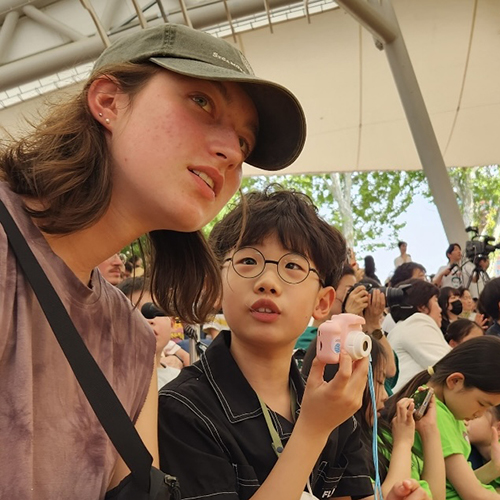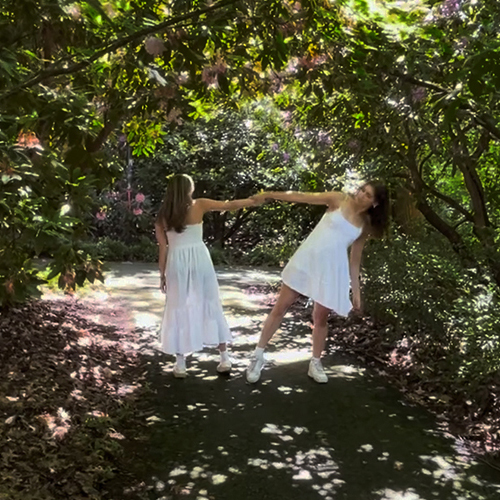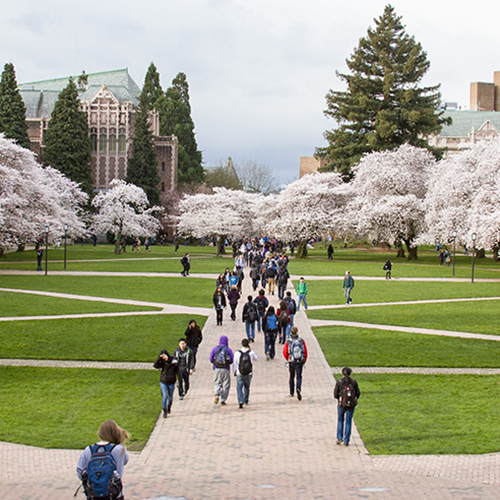In the locker room, suiting up for practice on a warm August afternoon, members of the Husky basketball team were engaged in a rousing discussion. The subject? Socrates.
Yes, really.
Team members had just come from a class on the Greek philosopher, held in their meeting room across the hall. The class was part of a five-credit course created specifically for the basketball team, taught by James Clauss, professor of classics and director of the UW Honors Program. The inspiration for the course was the basketball team’s 11-day trip to Greece in September, during which they were scheduled to play five games against professional basketball teams. Clauss held classes before, during, and after the trip.
“A lot of our teams get the opportunity to do international trips,” says Kim Durand, associate athletic director for student development. “We thought it would be so great to add an educational component.”

Clauss, an avid basketball fan with considerable experience leading study abroad programs, was both thrilled and apprehensive about joining the team on the tour. “I did not know how the student athletes would respond to a topic as seemingly rarefied and uncool as Greek philosophy,” says Clauss, “but they rose to the occasion and, what is more, they even seemed genuinely accepting of my participation on the trip.”
Clauss was also impressed by the team’s willingness to delve into the study of Socrates. First he had the students read Plato’s Apology, in which Socrates argues that an unexamined life is not worth living. Then they read Euthyphro, in which the Socratic method—the endless asking of probing questions—is introduced.
“After reading both books, the students commented that Socrates may have been an honorable man, but he was too in-your-face. He was unrelenting,” says Clauss. “They saw both sides of him with tremendous clarity. I was thrilled because they understood the material as well as, if not better than, other classes I have taught. That excellent athletes cannot be excellent students is, for want of a better word, a myth!”
During their time in Greece, the group met several more times, working around the team’s game schedule and various organized tours. Upon their return to Seattle, classes continued. By this time, the students were attempting their own Socratic dialogues on such issues as the nature of piety and happiness.
For their final project, the students merged the Socratic method and new technology. Working in pairs, they attempted a Socratic dialogue on a topic of their own choosing, using instant messaging on their computer. It’s a technique Clauss has tried with a friend and found both enlightening and challenging. “It caused me to be much more thoughtful in my responses,” says Clauss, “and I ended up with conclusions I wouldn’t have anticipated because the process of instant messaging allowed the conversation to slow down.”
Clauss hopes that exposure to Socratic dialogue will have a lasting impact on his students. “My goal was to introduce them to a mode of thinking that will remain with them for the rest of their lives,” says Clauss, who describes the class as “one of the most rewarding teaching experiences I’ve ever had.”
And the students’ response? Clauss smiles as he recalls how one basketball player, participating in a Socratic dialogue, blurted out in surprise, “Oh my God! I’m a philosopher!”
More Stories

Finding Family in Korea Through Language & Plants
Through her love of languages and plants — and some serendipity — UW junior Katie Ruesink connected with a Korean family while studying in Seoul.

Dancing Across Campus
For the dance course "Activating Space," students danced in public spaces across the University of Washington's Seattle campus this spring.

Four Students Shine as 2024 Dean's Medalists
Meet the four new graduates honored as College of Arts & Sciences Dean's Medalists for 2024.